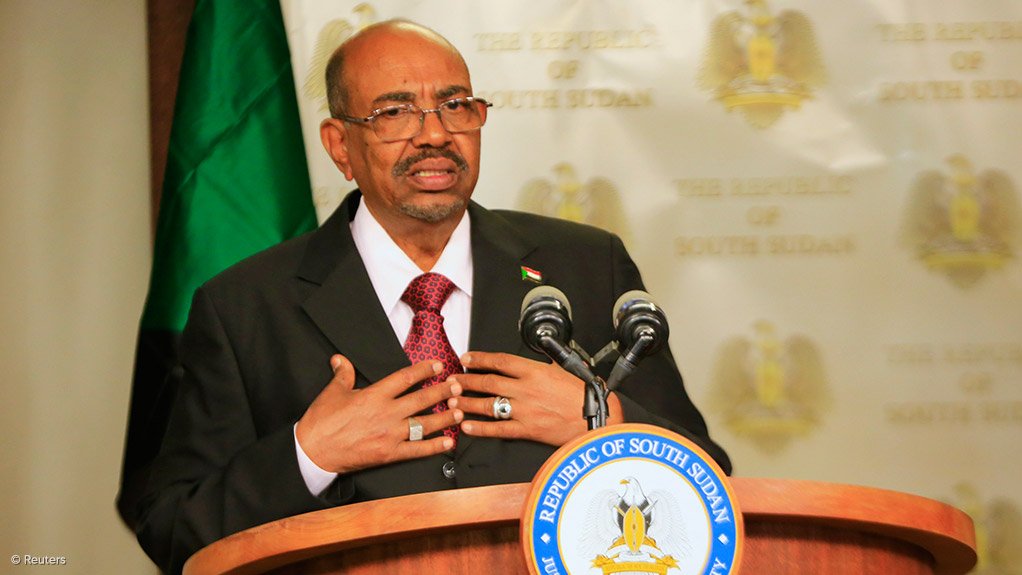The International Criminal Court (ICC) will hand down its ruling on Thursday on South Africa's failure to arrest Sudanese President Omar al-Bashir when he attended an African Union summit in South Africa in June 2015.
In 2009 and 2010, two warrants of arrest were issued by the ICC for Bashir for war crimes, crimes against humanity and genocide in connection with widespread violence in Darfur in western Sudan in 2003 between government and rebel forces. It is believed that about 300 000 people were killed and 2.7-million forced to flee their homes.
If South Africa is found to have been wanting, it will be decided whether the matter should be referred to the Assembly of State Parties to the Rome Statute and/or the United Nations Security Council.
Originally, when it emerged that Bashir would visit South Africa from June 13 to 15 in 2015, the Southern Africa Litigation Centre (SALC) contacted government departments, "reminding them of their duty to arrest Bashir should he arrive", the organisation explained.
At the time, the government apparently argued that Bashir was entitled to diplomatic immunity.
The SALC then approached the courts, obtaining an order compelling authorities to arrest him.
However, Bashir was allowed to leave the country.
In December 2016, the ICC decided to hold a public hearing to decide whether South Africa was guilty of non-compliance with the Rome Statute – its founding treaty.
On April 7 this year, the South African government appeared before the pre-trial chamber of the ICC to argue that the country's officials did not fail to comply with its obligations when they did not arrest Bashir.
The SALC opposed them, arguing that "South Africa flouted its obligations by actively facilitating President Bashir's escape, or, at a minimum, by failing to comply with its duty to arrest and surrender him to the ICC".
In the wake of the controversy of the Bashir matter, the South African government stated it intended to withdraw from the Rome Statute. However, in March this year, the government revoked this idea, following a ruling by the High Court in Pretoria in February which stipulated that a withdrawal would be unconstitutional and invalid – and needed to be taken to Parliament.
In June this year, it was reported that the ANC's subcommittee on international relations declared that the party's decision that South Africa should withdraw from the International Criminal Court still stood, although consultations on the matter continued.
EMAIL THIS ARTICLE SAVE THIS ARTICLE
To subscribe email subscriptions@creamermedia.co.za or click here
To advertise email advertising@creamermedia.co.za or click here











